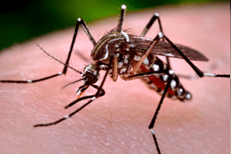Help! Where to start on setting up public health mosquito abatement


Mosquito control is a key function of protecting the public from the transmission of mosquito-borne diseases like West Nile virus, Zika, various forms of encephalitis, and others. Yet, 84% of surveyed local health departments in the United States told NAACHO (the National Association of County and City Health Officials) their vector control programs need improvement.

The reality is, public health officials have a lot to manage, and are tackling issues as varied as nutrition and exercise, to mental health and substance abuse. So to move the needle on mosquito abatement, many public health departments will consider turning to a professional mosquito control service provider to deliver a turnkey program for them.
From our work with health departments across the U.S., we’ve seen a trend of officials asking for guidance on how to determine the best path forward on mosquito control. In that spirit, here are 10 general ways to evaluate professional mosquito control service providers:
Looking for more? Download our checklist on what should all be included in an Request for Proposals from public health mosquito control service providers.